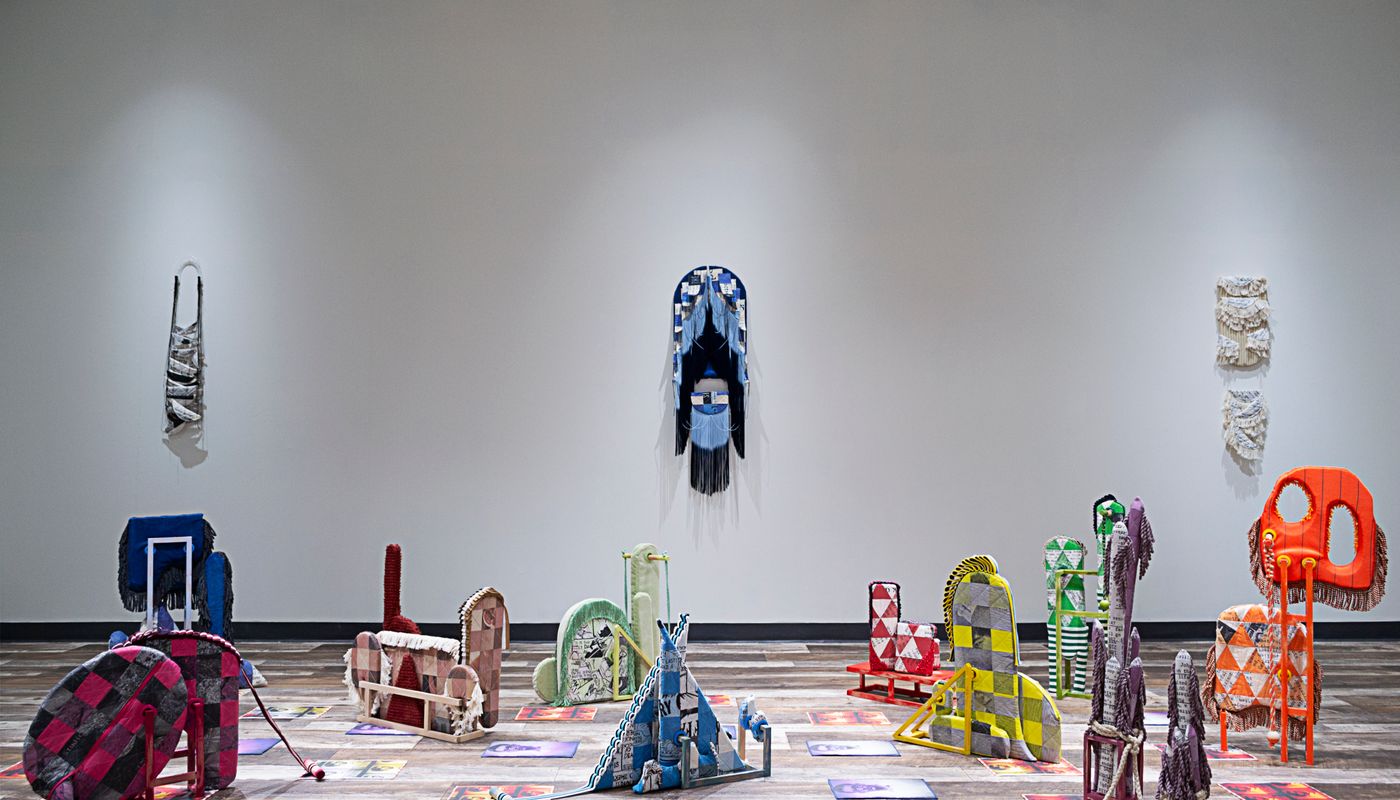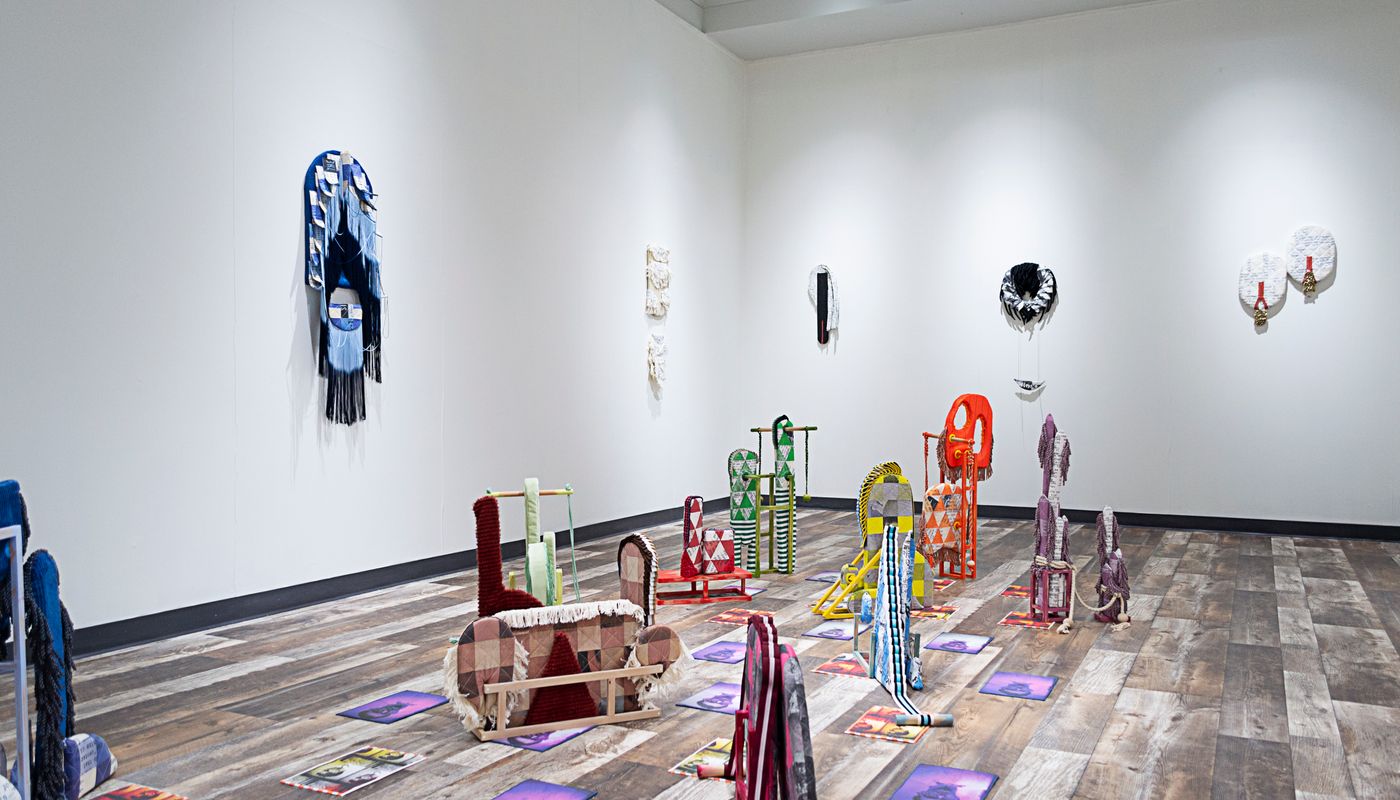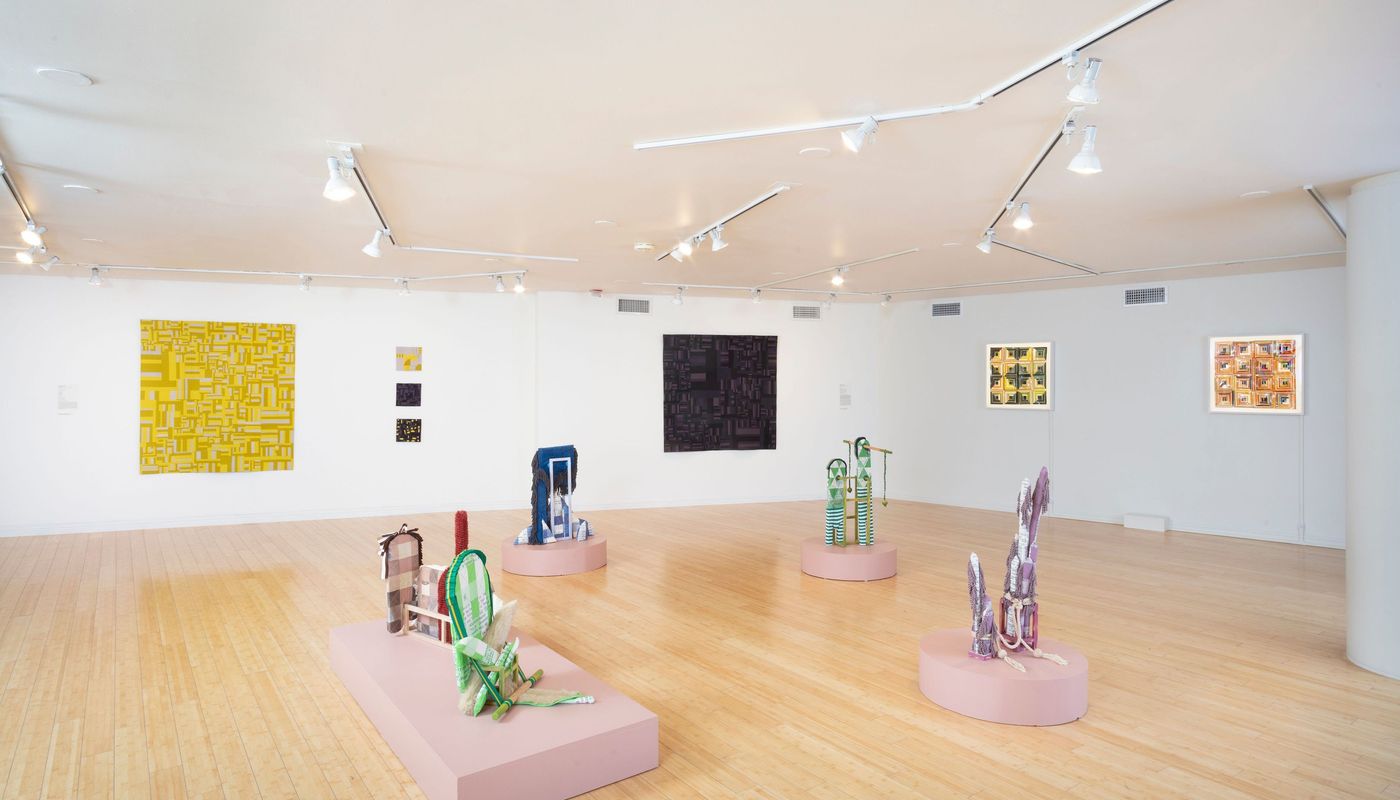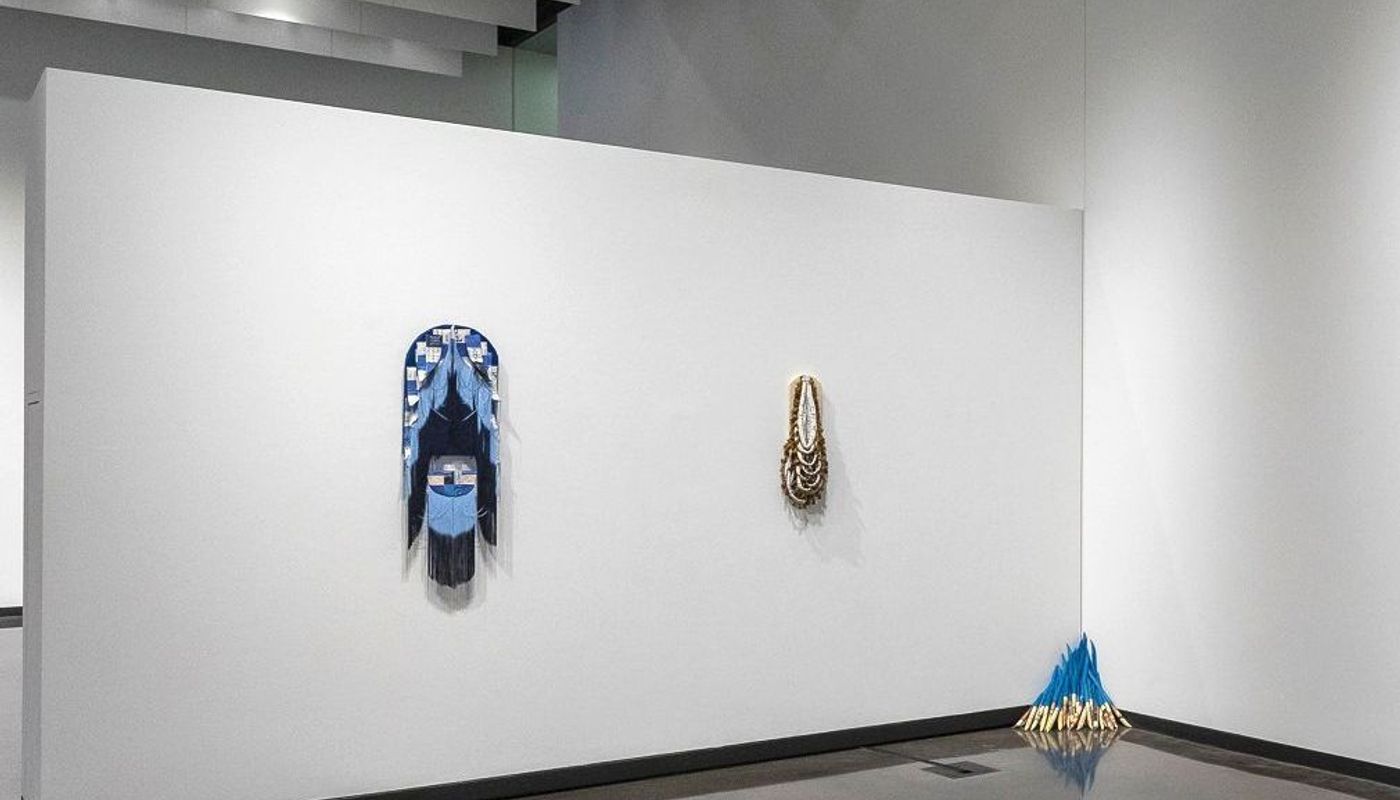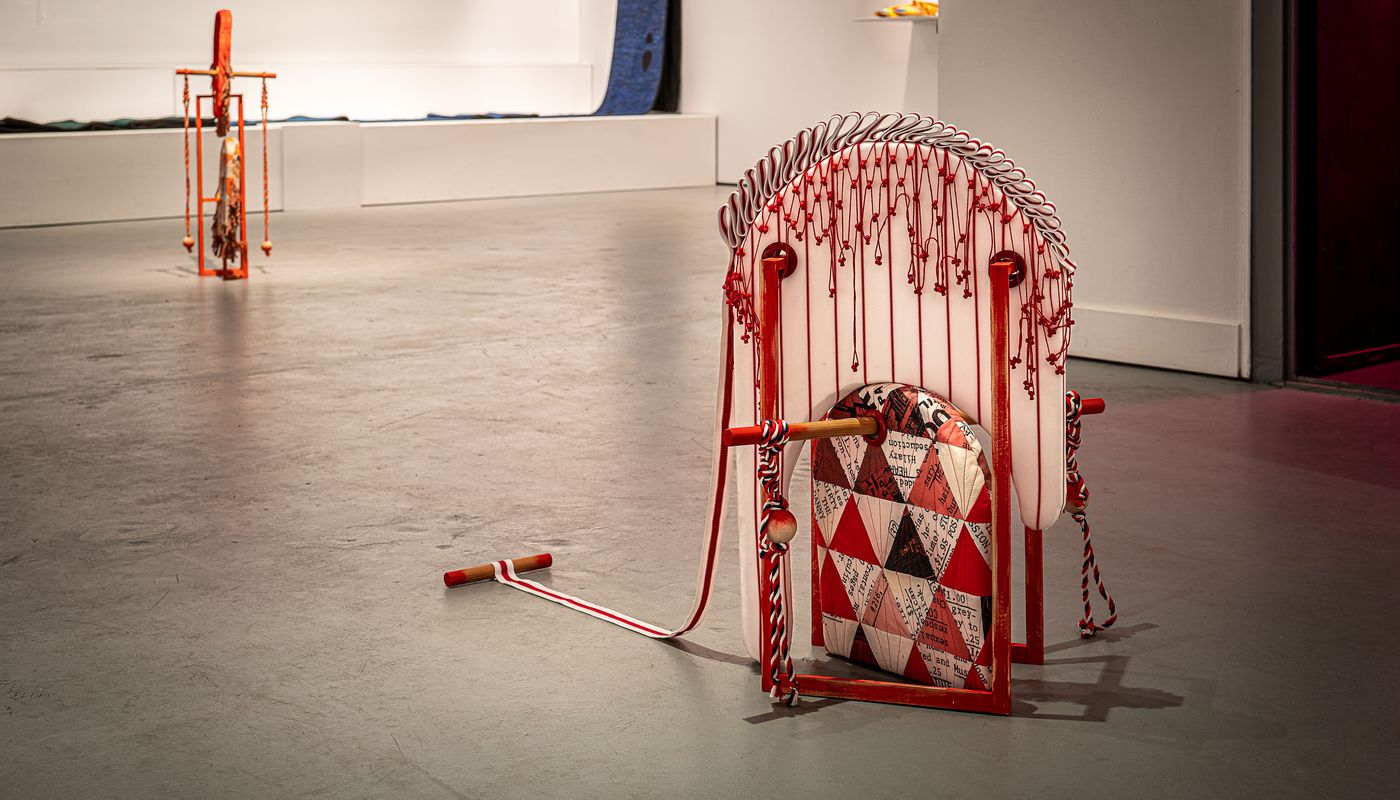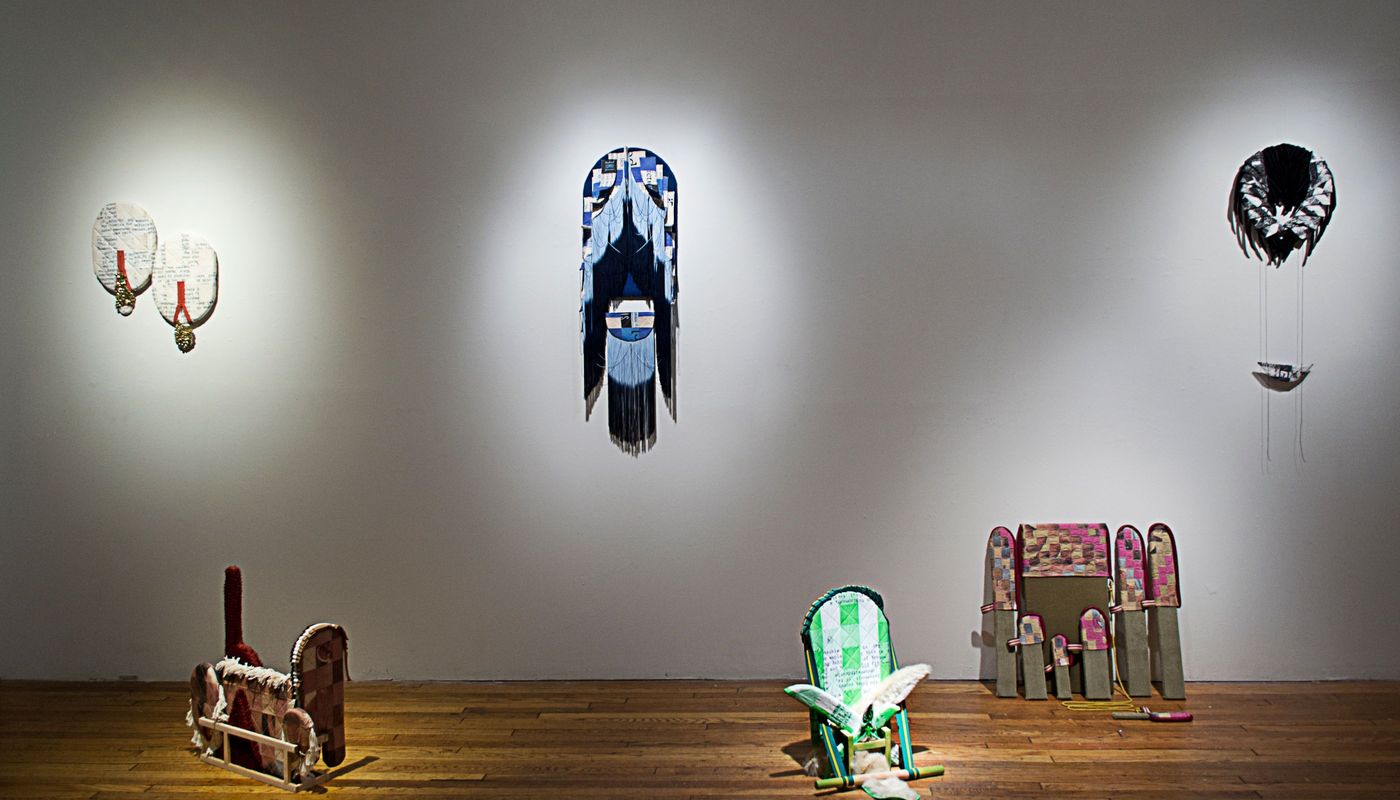Published in Philadelphia in 1964 by founder and editor Clark Polak, Drum became a venue to push radical sexual politics and considered to be one of the most successful; however, the publication ceased in 1969 following Polak's arrest for selling and distributing curiosa. Drum differed from other queer publications of the time as it flagrantly blended sexuality, politics, literature, and humor.
This series is based on a specific issue (vol. 6, no. 1, March 1966) and each page has been digitally printed on fabric and quilted. This particular issue was seized by the post office (in collaboration with the FBI), which led to Polak's federal indictment for mailing obscene material. This series is a formal investigation on a traditional technique of quilting (specifically referencing memorial quilts) framed within constructs of queer form. As well, the work considers historiography and active omission within 1960s queer culture in North America, tracing internal conflicts of which publications should be lauded (read as conservative and mainstream) and which ones are considered too radical (read as sexual and transgressive). Focusing on a specific issue is a way to outline how radical queer politics were disseminated, how it shaped perspectives on queer life, and how it was quickly derailed; giving way to more conventional views of sameness within the LGBTQ culture. This new work acts as a window into the struggle to create a particular queer voice and heralds the complexity of gay liberation culture post-1969.
This project is made possible by the support of British Columbia Arts Council (Project Assistance for Visual Artist). A big thank you to Bob Skiba, Curator at John J. Wilcox, Jr. Archives at William Way LGBT Community Center in Philadelphia, PA for granting access to the Clark Polak/Drum collection.
